Samantha's Secret Room
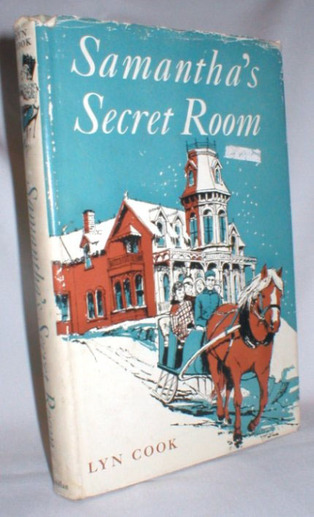
CIA's Amy Jo Espetveidt writes about her experience reading a novel while literally immersed in its local (Ontario) setting. I had a kind of similar experience. When I was a voraciously-reading kid of about eight or ten, my grandmother gave me this YA novel: Lyn Cook's "Samantha's Secret Room" (because of the name. Back then there weren't as many girls named Sam, so it was cool to read this one). The setting of the story didn't register with me back then - I just remember loving the twisty plot, the romantic older cousin, and other important details like that alluring turquoise hairband.
Later (when I was sixteen), my grandparents built a family cottage near to the Ontario town of Penetanguishene (a name that confounded all my German friends). My grandparents were Toronto people - they didn't really know the Penetang area at all. Why do I mention this? Because about ten years after that (when I was about twenty-six) and I had started to pay a lot of attention to YA fiction, I realized that everywhere in Penetang you'd come across that same old book: Samantha's Secret Room.
So I read it again and I realized it was set in Penetang (in the 1950's). Reading the book as a grown-up, I realized that it was 1) still a great read, and 2) it was a fabulous example of a YA novel making brave, bold, unapologetic use of a local Canadian setting! And doing so in the 1950's, no less! Reading that story after I'd actually been to all of those places, was delightful. And it was even more delightful to think that my grandmother, who, to my knowledge, had never been to Penetang and knew nothing about its local stories, had just happened to give that book to me so long ago, without knowing that it held the story of a place she'd later come to call home herself.
Local Settings in Canadian Teen Fiction
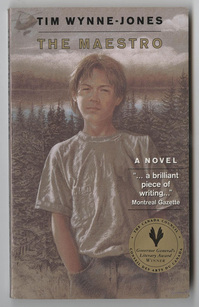
But it turned out that this was really hard to do.
Let me give you some context. I know a bit about Canadian YA fiction. From Farley Mowat's The Black Joke to the contemporary fiction of Canadian writers like Tim Wynne-Jones, I love finding Canadian places referenced in YA novels (If you haven't read anything by Tim Wynne-Jones, rush out and do so right away. The Maestro, his compelling tale of a unlikely comraderie that is born in the northern Ontario wilderness, would be one good place to start).
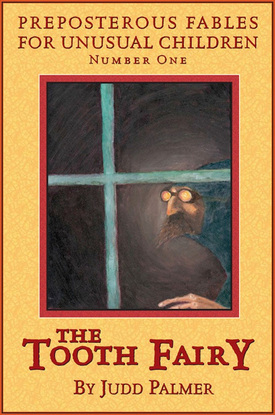
So, there's local author Shirlee Smith Matheson. I've only read her non-fiction books - which certainly tell tales of local history - but I know she has a collection of YA books too, which I'm pretty sure are packed with Alberta - and probably Calgary - places and people. If this is the case, she's my one and only bona fide Calgary-setting YA author.
And there's longtime Calgary author Judd Palmer (who no longer resides here, I've heard) - who brought some cachet to the metier of being a Calgary author with his really beautiful-looking "Preposterous Fables for Unusual Children," (but didn't actually set any of his books in Calgary, as far as I know). These books are original and lovely, but I've always felt they might have missed the mark - supposedly for youngsters, I think they're actually enjoyed more by grown-ups. It makes them hard to categorize. But I digress, as usual.
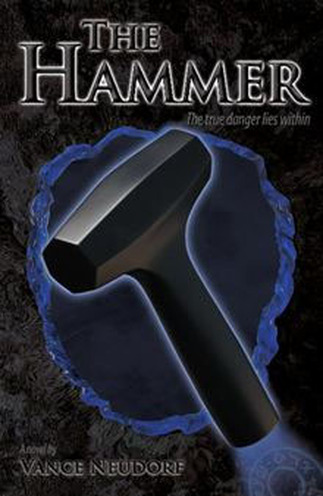
I really liked The Hammer. I read it back in 2008 and really wanted to write about it, but got distracted by having a baby. I had been reading another new Canadian YA author - Ontario author James Bow - whose novel The Unwritten Girl was a bit of a sly homage to Madeleine L'Engle. Bow's novel incorporated a whole lot of references to her work. However, intentionally or not, it was Neudorf whom I felt was actually channelling L'Engle in his novel. Maybe it's the fact that both Neudorf and L'Engle seem to be fuelled by a strong spiritual Christianity, which inspires, rather than detracts from, their excellent storytelling skills. I thought The Hammer - at least, the early copy I read - needed some editing. But other than that, it was one of the strongest new local novels I'd read in a long time. That was in 2008. What's Vance Neudorf doing now, I wonder? Writing, I hope!
Why I Care About All This
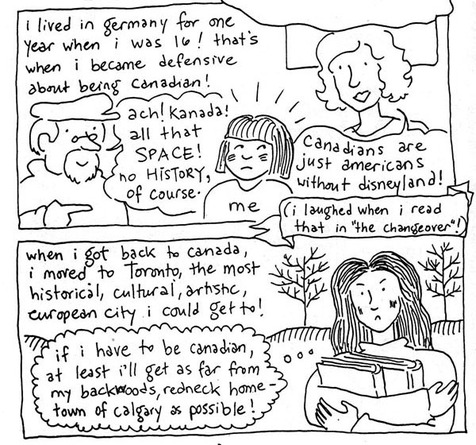
As I wrote in this comic strip, I used to feel ashamed of coming from such a cultureless hick town. Then, inspired by New Zealand's brilliant children's writer Margaret Mahy, I started to feel that it actually behooves "hick town" residents to write about their towns, thereby transforming them into places worthy of culture and art.
Mahy writes, "For a variety of reasons, partly because my own childhood reading was so predominantly British, my first stories were set in nowhere – or rather, in that place where all stories co-exist, where story is nothing but itself." However, Mahy's settings began increasingly to incorporate elements of a New Zealand setting, although initially, these elements were not necessarily apparent to readers. Mahy has said of her 1982 novel The Haunting: "In my mind the characters... lived in New Zealand, though there is no real clue to this in the story..."
...
"You'd think," says Mahy, interviewed in a 2005 article, "[that] you'd automatically be able to write about the place you've lived in all your life – but the stories I'd had read to me as a child [set predominantly in the United Kingdom] somehow disinherited me." Elsewhere, she has explained: "the landscape in which I had grown up and the idiom I heard every day seemed somehow unnatural to me..." Mahy's changeover from a writer labouring under what she has called an "imaginative displacement" from her native New Zealand, to a writer who, decades later, was able to say that she "felt quite triumphant over writing a story set in [her] own country," has been well documented, in numerous interviews, as well as in her own book of essays and criticism, A Dissolving Ghost, and Tessa Duder's 2005 biography, Margaret Mahy: A Writer's Life.
But you know what - I don't think this is the reason I can't find contemporary YA novels set in Calgary. It's not a case of that Canadian humility that makes us feel our hometowns aren't worth writing about. Most Canadian authors have gotten past that. It's something about Calgary.
Why Not Calgary?
I think there's a critical mass thing that happens - when enough people live somewhere, or at least know about that place, authors feel like they can write about it. So we have novels set in Paris and songs about Sunset Boulevard (or maybe that's a movie. But you know what I mean.) American authors always seem curiously unafraid to place their fiction in unapologetic local settings (even naming their stories after those place names - even when those places are fictional - from Centerburg Tales to Winesburg, Ohio) - but I think there's a different culture of place down there. As far as Canada goes, Ontario might be history/population-heavy enough that writers aren't afraid to throw down those weighty place names. At least, there are certainly a lot (a lot!!!) of YA novels set in Ontario.
On the other hand, there's also a strong precedent for nameless, placeless and/or fictional "Canadian" settings. From Margaret Laurence's Manawaka (based on Neepawa) to Stephen Leacock's Sunshine Sketches of a Little Town (set in the fictional town of Mariposa, modelled after Orillia), to James Bow's aforementioned The Unwritten Girl (set somewhere on the Bruce Peninsula, if I remember right). And there are countless stories that are just set "somewhere" - all specific references to location omitted - presumably (it always seems to me), so that the stories will be more "accessible" to American markets.
So here's what I think. Maybe Calgary falls into an awkward spot between a really well-known place (say, Paris) and that ambiguous, nameless "somewhere". Authors, or publishers, or somebody, must have the feeling that placing a story in Calgary places it somewhere in a reader's mind: somewhere limiting enough that it will distract from the universality of the story, or worse, dissuade the buyer.
Setting a story in some unnamed ambiguous prairie town gives the enormous markets - I mean, readers - in Ontario/the USA/etc the freedom to imagine the story in a prairie town of their choice. But saying it's in Calgary will immediately bring up an image in the minds of those buyers - er, readers - which might not appeal. Like... you name it... cowboys? Engineers? Right-wingers? Oil barons? Whatever it is, it's presumably not as "universal" as, say, an imagined character who lives in Toronto. That could be ANYBODY!
But ANYBODY could live here, too... and does. Are we letting Canadian readers know?
So What Can We Do?
Am I totally wrong about this theory? Please let me know if that's the case! After all, I'm just making this up in my living room at 2 AM. Someday it would be fun to go listen in on what some real scholars have to say about all this.
Meanwhile, if you want your city to be known for the arts, you have to make the art yourself, and let people know where it's happening. That's why I'm writing comic strips about my neighbourhood. And I actually chose @calgaryhester as my Twitter handle (something I would never have dreamed of doing ten years ago... even if I could have imagined something like Twitter). (By the way, I realized afterwards that this handle might be awkward if I actually do ever leave Calgary, but we'll cross that bridge when we come to it.)
OK, I'm waiting for a bunch of indignant local authors who have set their novels in Calgary to set me straight. And I hope they've written to tell Calgary is Awesome that they're out there, too!
Notes... because I haven't said enough about all this
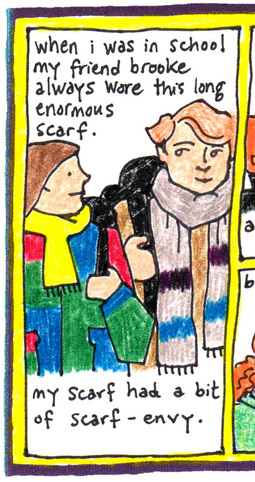
Back in university I made a friend who liked books, just like me (maybe even more). It seems we still have a few interests in common, because these days he's blogging about stories from around the world that refer to Canada. Not Canadian books - not books entirely set in Canada - but places in which Canada gets a mention from a non-Canadian point of view. This is a fun and actually pretty enlightening subject to read about. Brooke's blog about "Canada through the eyes of World Literature" is called Wow - Canada! And you should check it out. Even though he lives in Toronto (ha, ha).
There are quite a few pictures of Brooke in the Drawing Book, but here's the only one I can find right at the moment - from a very short comic strip called "Eulogy for a Scarf."
When I first saw Brooke's blog, I thought right away of this one tantalizing, seemingly throwaway reference to a Canadian setting in a non-Canadian book: it's from Faulkner's Absalom, Absalom (Faulkner is one of the few "grown up" authors I really love), and shows up in the last line of the last page of the book, at the end of a list of the characters' brief biographies:
Luckily, I'm not the only one who's been wondering. It looks as though a scholar by the name of Kayoko Shimanuki, apparently a doctoral student at Kyoto University sometime after 2006, wrote a paper called Absalom, Absalom! Reconsidered: A Story of Canadian Shreve. It doesn't explain why Faulkner picked Edmonton, but it does talk about how Shreve's Canadian-ness influences his perspective on this American story. I hope Shimanuki got that PhD.
2. More about Margaret Mahy
Here's some more from that essay about how Mahy struggled to overcome a whole nation's history of literaturelessness... and how Canada has suffered from the same trouble. But not anymore, right?
Mahy's "displacement" is accredited (in a 2004 interview) in part to "the default assumption then, [when Mahy was a child] and for a long time afterwards, ...that New Zealand experiences were less interesting and valuable than British or European ones" (Ridge 2004). Contributing to this kind of assumption was the absence of a solid oeuvre of New Zealand writing. Mahy explains elsewhere: "Other contemporary New Zealand writers also had difficulty in writing about New Zealand at that time, partly because there was so little to draw on. The indigenous writing of the 1930s and 1940s was very self-conscious" (Eccleshare). As Mahy says of her reaction to this literary climate: "I didn't imaginatively believe my own New Zealand stories in the ways I believed in the fantasies and such things that I'd been writing" (Larsen).
Some aspects of New Zealand's developing literary climate could be said to have had their parallels in Canada. Jennifer Andrews has written that the respected Canadian humorist Stephen Leacock "may have believed that Canadian humour... was better positioned to compete on the world stage when it was not overtly defined as Canadian" ("Humouring"). A traditional view of Canada's cultural output was expressed by British children's literature critic John Rowe Townsend in 1976: "Canada, in children's books as in much else [including, presumably, comics], remains in the American shadow" (210).
Once, I recorded... and graphed (!!??)... all the references to Canada that were made in over 20 years of "For Better of For Worse." (Actually, I think my multi-talented friend Andrew helped me make the graph.) I'm too sleepy to say any more about this now, for which I'm sure you will be truly grateful.
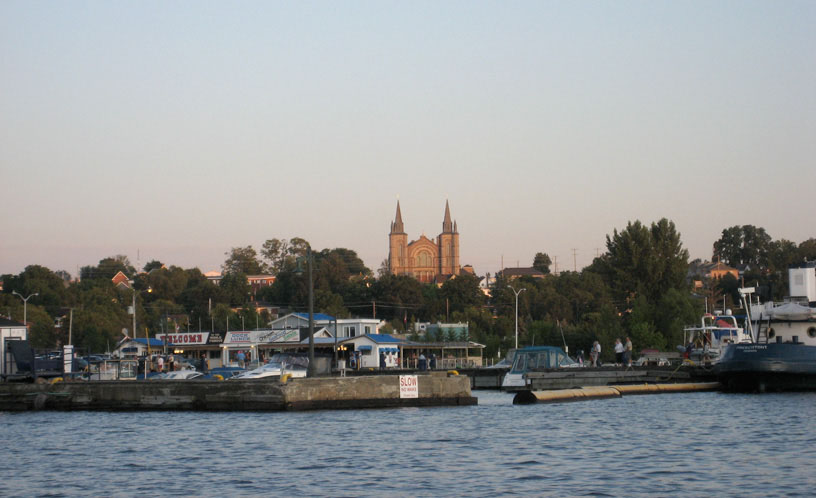
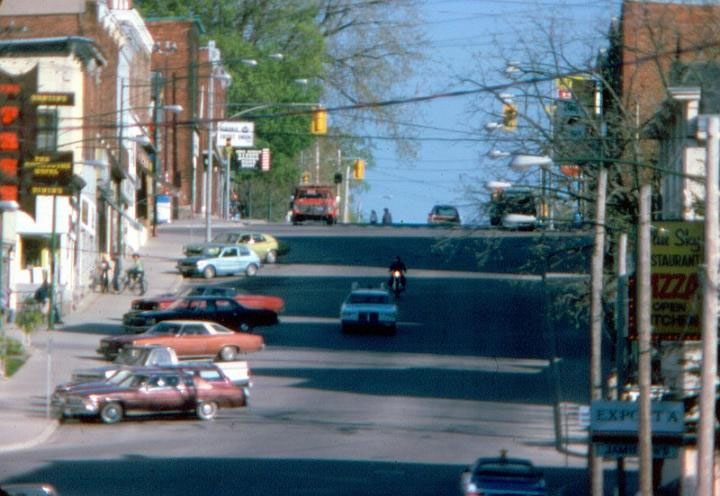
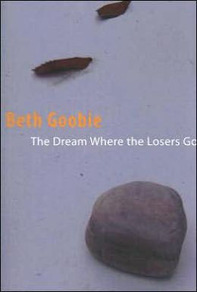
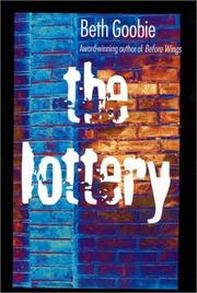
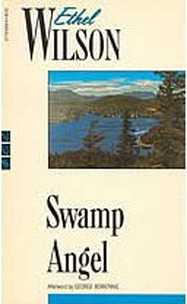
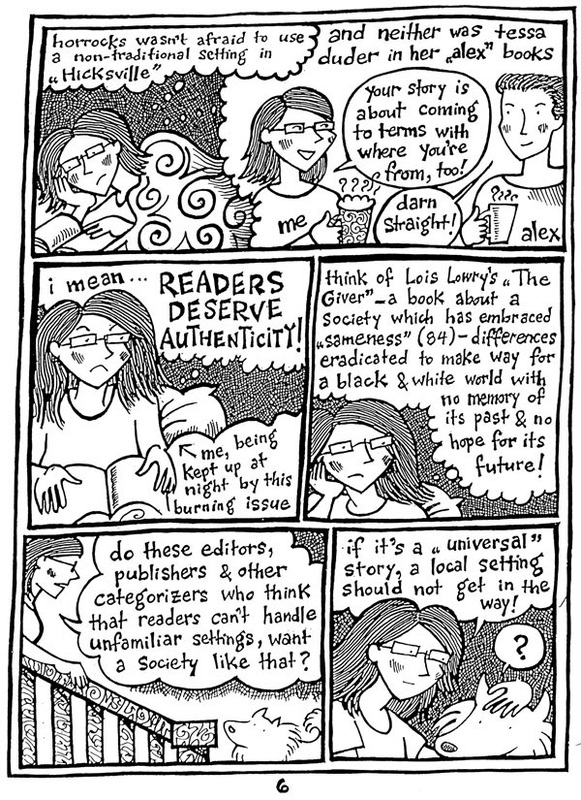
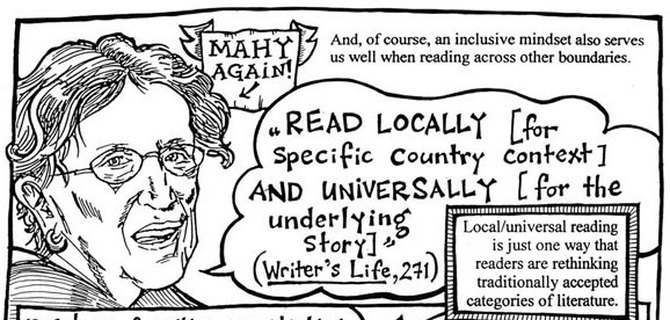
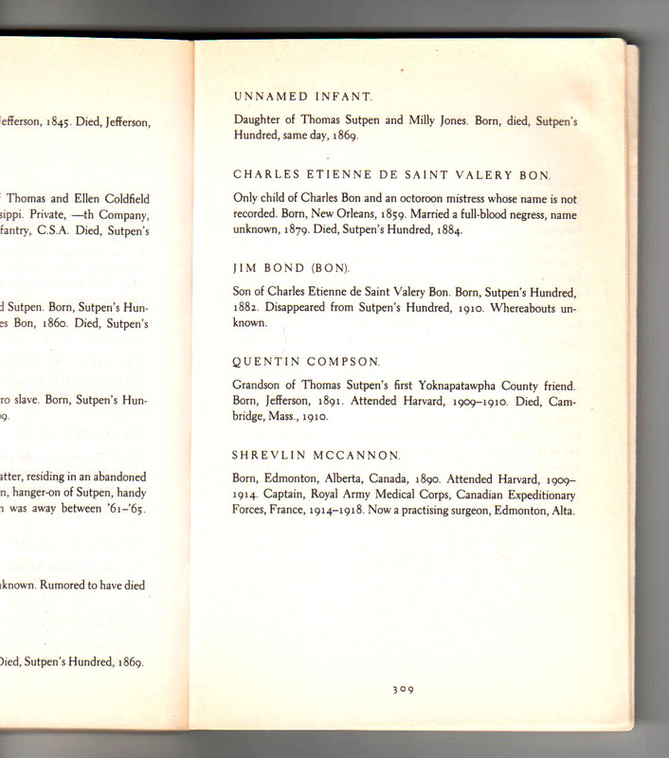
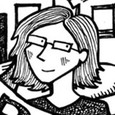
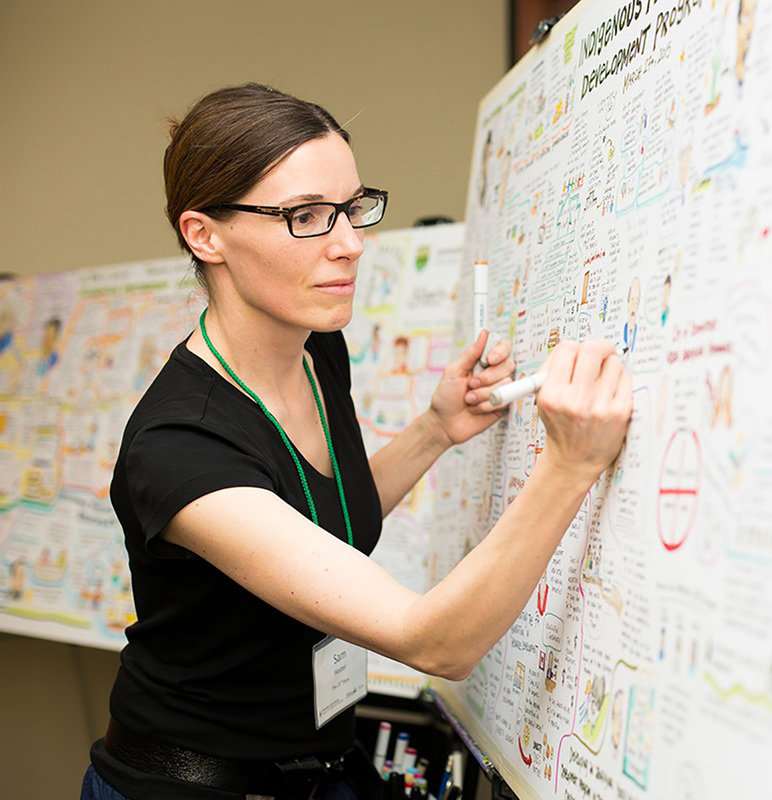
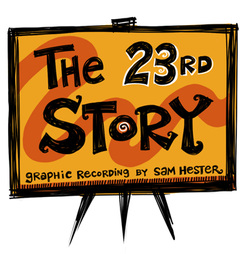
 RSS Feed
RSS Feed